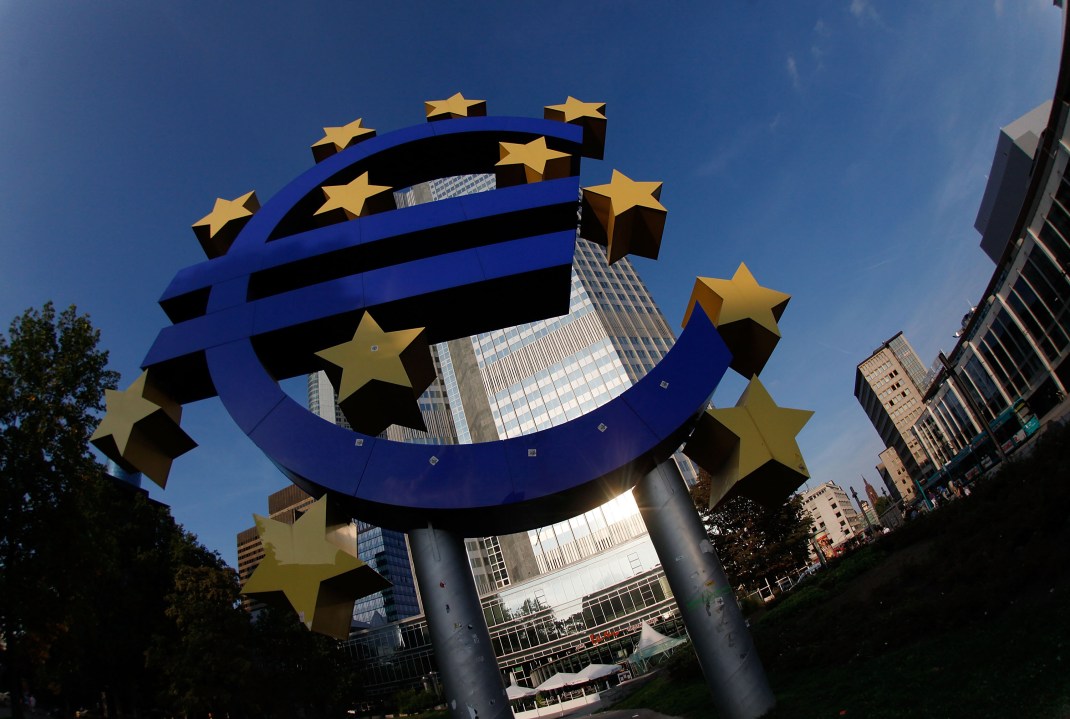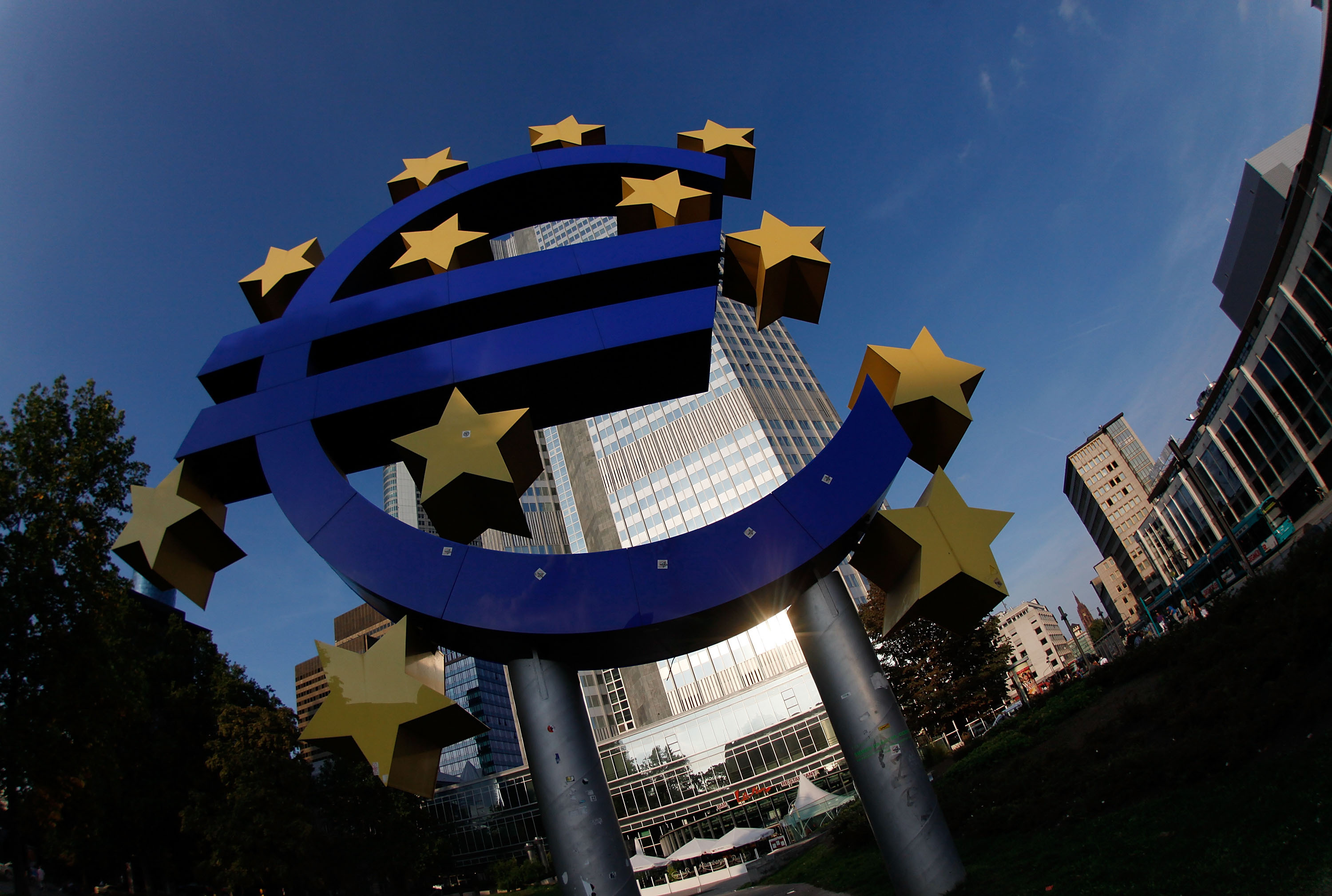 While all eyes are fixed on Italy’s ever-increasing borrowing rates, a far larger
problem may well be emerging. The EU bailout fund, set up to help countries who can’t borrow, may itself have trouble borrowing very soon.
While all eyes are fixed on Italy’s ever-increasing borrowing rates, a far larger
problem may well be emerging. The EU bailout fund, set up to help countries who can’t borrow, may itself have trouble borrowing very soon.
A sale this morning of 10-year bonds by the European Financial Stability Facility (EFSF) had a very muted response, barely bringing in the €3 billion it was meant to. This despite the fact that the offer was priced at a much more enticing yield, some 90 basis points (or 0.9 percentage points in non-market lingo) above a previous sale.
Mind you, that’s better than last week’s sale, which had to be postponed due to lack of interest. The EFSF was set up as a fund that lends to eurozone companies that are finding it hard to raise money. After the latest and supposedly last set of crisis talks, the EU sent envoys to China to drum up support for the fund. This was itself suspicious: if this is indeed an AAA-rated fund why should it need a salesman? Beijing was not interested, and issued a rude reminder the Chinese worked hard to build up the $3 trillion surplus fund it’s sitting on.
Quietly, the EFSF is looking a little tarnished. The spread of EFSF bonds sold to date over comparable German Bunds – a gauge of how risky investors feel the bonds to be compared with
rock-solid German paper – have been widening in scary fashion. The spread on 5-year EFSF bonds sold in January has more than tripled since then, leaving those investors who bought earlier,
such as Japan, sitting on a loss. Today’s sale represents a spread of 177 basis points over corresponding Bunds. This graph, from the FT, shows how the spreads on three different EFSF bonds have
soared in the last few months:

At this rate, the eurozone’s dream of cash-rich foreign nations just rocking up to buy up its debt is not going to materialise – and the concept of a bailout fund will collapse. Even
Tokyo is running out of patience: it has said it purchased 10 per cent of today’s sale – the smallest amount it has bought so far
from the EFSF.
Does it matter? Faisal Islam summed it up in his superb Spectator cover piece about Greece and Germany:
It is so technically brilliant that no one seems to have looked at the basic concept. The Eurozone invents a fund, labels it AAA and hope the Asians will pour their billions into an acronym. There is so much political will for the EFSF to succeed that no one has been willing to contemplate its failure. They had better start now.‘The offices of the EFSF has become the epicentre of the debate in global financial diplomacy — and has become the focal point for intensifying German fears. The EFSF’s mission is to lower the interest rates paid by indebted European nations by effectively sprinkling their debts with some AAA gold-dust. Its war chest, so far, contains €780 billion of guarantees from Europe’s remaining AAA-rated nations, with almost a fifth stumped up by German taxpayers. The increasingly anxious US Treasury Secretary, Timothy Geithner, believes even this sum is inadequate — and that a €2 trillion bailout fund is needed. If such money is raised, then the EFSF’s funds would be ten times the annual budget of the European Union. Quite something for an office that employs 15 people.’
Hat-tip: Johan Norberg







Comments